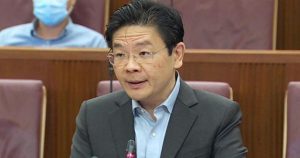As an increasing number of wealthy families transition to the next generation, there is a growing demand for family office structures to manage wealth and assets. Due to the everchanging international tax landscape, these families are looking to establish simple structures that With various developments in the international tax landscape, most families are looking at implementing structures that are simple, compliant, feasible and tax efficient.
Developments In The Overall International Tax Landscape
The international tax landscape has gone through substantial changes in the past two decades, leading to the introduction of global measures in an attempt to combat international tax avoidance.
For example, the Organization for Economic Co-operation and Development (“OECD”) recently introduced the BEPS 2.0 two-pillar approach, which aims to improve international tax certainty and increase tax equity. What started as an initiative to tackle tax avoidance by multinationals has reshaped global tax by pressuring international businesses to pay a minimum level of tax, regardless of their profit jurisdiction.
Greater Transparency And Information Exchange Amongst Jurisdictions
In 2014, the United States of America introduced the Foreign Account Tax Compliance Act (“FATCA”), followed by the Organization for Economic Co-operation and Development (“OECD”) implementation of the Common Reporting Standard (“CRS”) in 2016. This resulted in a tax jurisdictions having increased access to information regarding the assets of wealthy families.
Tax jurisdictions have since introduced programs to regulate tax reporting for taxpayers as a compliance improvement strategy. The Inland Revenue Authority of Singapore (“IRAS”) has started to conduct risk reviews on Financial Institutions’ compliance with the various tax transparency and exchange of information requirements; a sign that tax transparency is at the top of their agenda.
Why Singapore?
Singapore has various attractive factors to be considered as an ideal jurisdiction for a family office. Singapore – known for its stable political environment and resilient economy – is also being positioned as a well-established financial hub with a strong regulatory framework. Some foreign families which already own Singapore properties also view Singapore as a relatively safe and conducive place to live in, not to mention the robust education system available for their children.
For families with an international business presence, setting up global or regional headquarters in Singapore which acts as a control tower to manage and direct their global business activities is also a rising trend in the recent years.
With the above in mind, there are also some interesting observations in relation to the unique factors considered by high-net worth families from various key jurisdictions, when concluding that Singapore is the ideal jurisdiction to set up a family office. Even locally, there is significant interest from Singapore private clients in setting up family office structures, mainly to consolidate their local and overseas investments under one platform as well as to professionalise the management of their personal wealth.
The family office provides a formal and professional platform for successive generations of families to participate in the management of the family wealth. The fund exemption schemes applicable to family office structures also provide the much-desired certainty in tax treatment for these Singapore families when carrying on their investment activities.
It is likely with the COVID-19 situation where family members have more time and opportunities to interact with one another, discussions on inter-generational wealth transfers can take place, prompting interest in the family office structure. As these families are already in Singapore, it is only natural and convenient for them to look internally; and not beyond the shores for an alternative jurisdiction to base their family office in.
Singapore Variable Capital Companies (VCC)
There has been much interest from private clients to explore the feasibility of using the new corporate structure, VCC, for their family office structures.
A key current requirement for a VCC set up is that the VCC must be managed by a licensed or regulated fund manager. However, in a single-family office context, the family’s fund management company is typically exempt from such licensing requirements and the family may not have an appetite for fund management licensing and registration.
As a result, the VCC idea is often being shelved for future discussions.
The good news is that the Monetary Authority of Singapore (“MAS”) is looking to introduce an enhancement to the VCC framework by liberalising the above-mentioned requirement (for example, possibly allowing single-family offices to manage VCCs set up for the family).
It is, however, foreseen that the actual liberalisation may take some time. This development should be monitored closely as the VCC does offer certain features (such as the sub-fund concept) which are sought after by families with multiple family members each intending to own separate pool of assets.
Final Words
While family office is not a new concept in Singapore, with the ongoing COVID-19 pandemic, fast-changing business environment and tightening of the international tax landscape, high-net worth families are increasingly considering Singapore as a good location for their funds and family office structure. These families view Singapore as an ideal location to preserve and grow their assets in a compliant and tax-efficient environment.
At Meyzer360, we recognize the importance of protecting your family’s wealth. Our reputation as savvy businesspeople has earned us a clientele which includes listed companies, ultra high-net-worth individuals and numerous leading companies worldwide.
If you are interested in opening a family office in Singapore, send us a message and our team will be in contact with you shortly.












